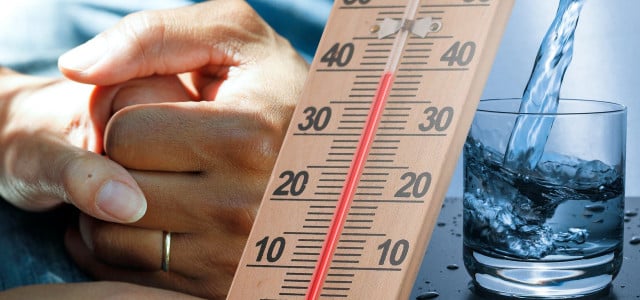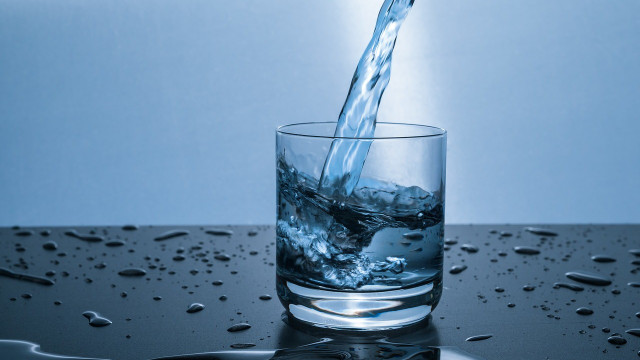
For some, it is the pinnacle of summer feelings. For others, temperatures above 30 degrees are pure torture. And sometimes even dangerous. The risk of death increases from as little as 30 degrees Celsius. We explain to you what you absolutely have to watch out for in high summer temperatures and which groups of people you should take care of.
In the coming days it will be hot like summer in some regions of Germany, in some cases the values will crack the 30 degree mark. While some are cheering and enjoying the hot summer days, others are really struggling – even to the point of serious health problems. Extreme heat puts a strain on the lungs, the heart and the psyche – and can become a serious hazard. Taking certain medications can also make you more susceptible to heat-related health problems.
Heat can be dangerous
Federal and state medical associations drew attention to the health hazards of heat on Wednesday with a day of action. They pointed out that, according to figures from the Robert Koch Institute, there were 4,500 heat-related deaths in Germany last year alone. According to the RKI, this ranges from deaths from heat stroke to more complex constellations, for example in people with previous cardiovascular or lung diseases.
“As a society, we have to better protect vulnerable groups in particular, such as the elderly, those with previous illnesses, children and pregnant women. Our healthcare system is currently unable to absorb a real heat wave that lasts longer than two or three days,” says Dr. Peter Bobbert, President of the Berlin Medical Association.
Federal Minister of Health Karl Lauterbach (SPD) has now announced concrete heat protection measures, he is planning a heat protection plan based on the French model.
Read more: Heatwaves: How hot is too hot for humans?
Heatwave: who is most at risk?
People over 65 and people with chronic pre-existing conditions suffer particularly from the effects of the heat wave – especially if they drink too little. High temperatures increase the risk of falls, dehydration, confusion and circulatory problems up to and including circulatory arrest.
The body protects itself from the high outside temperatures with “evaporative cooling”: It occurs when sweat evaporates on the skin and cools it down. But this protective mechanism can be significantly reduced in older people. Medications can also help a person sweat less than is necessary. If it is no longer possible to cool down through sweating, there is a risk of heat build-up: blood vessels in the arms and legs dilate, blood pressure drops. Reduced blood flow to the brain can lead to unconsciousness. If the entire body overheats – the temperature can then rise to over 40 degrees within a short time – there is also a risk of brain swelling. Even such a heat stroke can be fatal.
Babies and small children are also at risk: they are less able to adapt to high temperatures than adults, they produce less sweat and their skin surface is larger in relation to their body weight.
In addition to the elderly, people with previous illnesses, pregnant women, infants and children, according to the State Medical Association, the homeless and people who work outdoors – such as construction workers – are also among the particularly vulnerable groups.
How dangerous are the hot days?
From a temperature of 30 degrees Celsius, we speak of hot days. During a heat wave, it is over 30 degrees during the day for several days, and the temperature does not drop below 20 degrees at night. If the body cannot recover sufficiently at night, heat-related stress increases and dangerous heat build-up or life-threatening heat stroke can occur. It becomes particularly dangerous when the outside temperature exceeds body temperature (about 37 degrees Celsius). The body can then no longer emit the heat to the outside.
Sufficient liquid for seniors and children
Water is the be-all and end-all when it’s hot – this applies to young and old. However, older people have to pay more attention to their fluid balance than younger people, because the risk of a lack of water increases with age. The causes lie in insufficient fluid intake and possibly larger fluid losses. In old age, the sense of thirst often decreases and people drink less.

It should be at least two liters of water a day. It’s best to drink a glass of water every hour – even if you’re not thirsty, that’s the recommendation of the Federal Environment Agency in its heat etiquette. “Recommended drinks in hot weather: tap water, mineral water, chilled herbal tea with no added sugar, tea with mint and lemon. Important: do not drink ice cold!”
It can be helpful to place several glasses with water in frequently used places in the apartment, for example next to the refrigerator, in the hallway and in the bathroom.
Heat timetable: basic rules for hot days
Everyone should protect themselves from the heat – no matter how old they are:
- Keep rooms cool, only ventilate early in the morning and at night. Keep windows closed and blinds down during the day.
- Drink a lot and eat salty foods, because you lose minerals when you sweat. Eating the right things on a hot day can help us deal with the heat better.
- Limit outdoor activities to the cooler mornings and evenings. Children should play in the shade.
-
Never leave children and dogs unattended in the car.
Check the skin temperature of infants, small children and the elderly regularly, cool with a damp cloth if necessary.
Weakness, fever, severe headache, confusion, dizziness, nausea and muscle spasms are warning signs. You should take those affected to a cool place, cool them with damp cloths, raise their legs, give them something to drink and call the doctor.
Here you will find tips and home remedies to help with circulatory problems.
With material from the dpa
Read more on Techzle.com:
- Sleeping in the heat: 12 common mistakes that make you sleep less well
- 7 common mistakes to avoid when it’s hot
- Cooling your home without air conditioning: tips & tricks